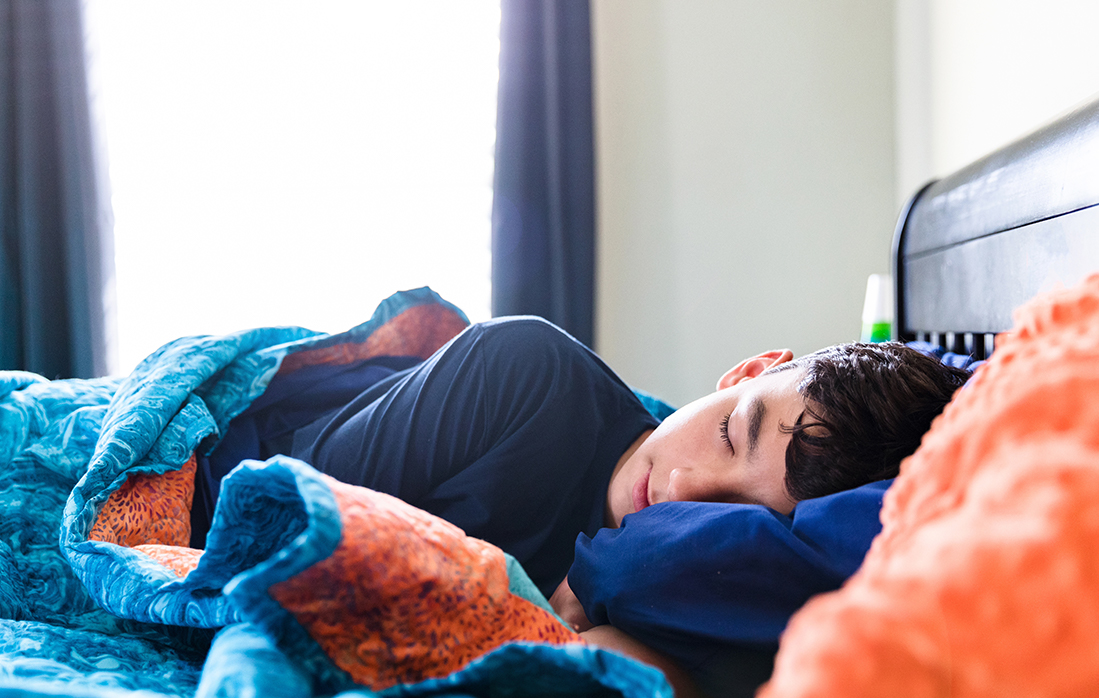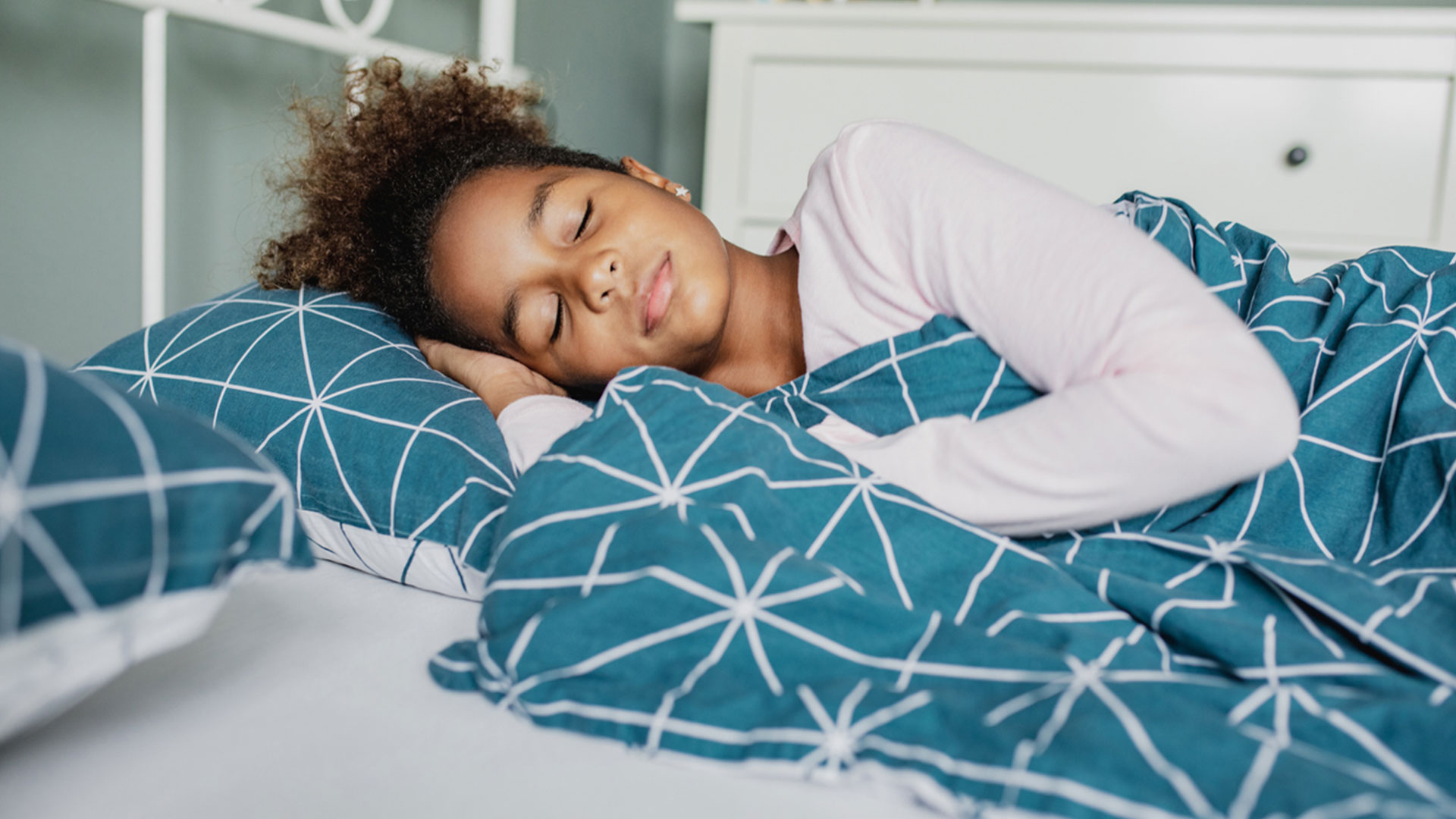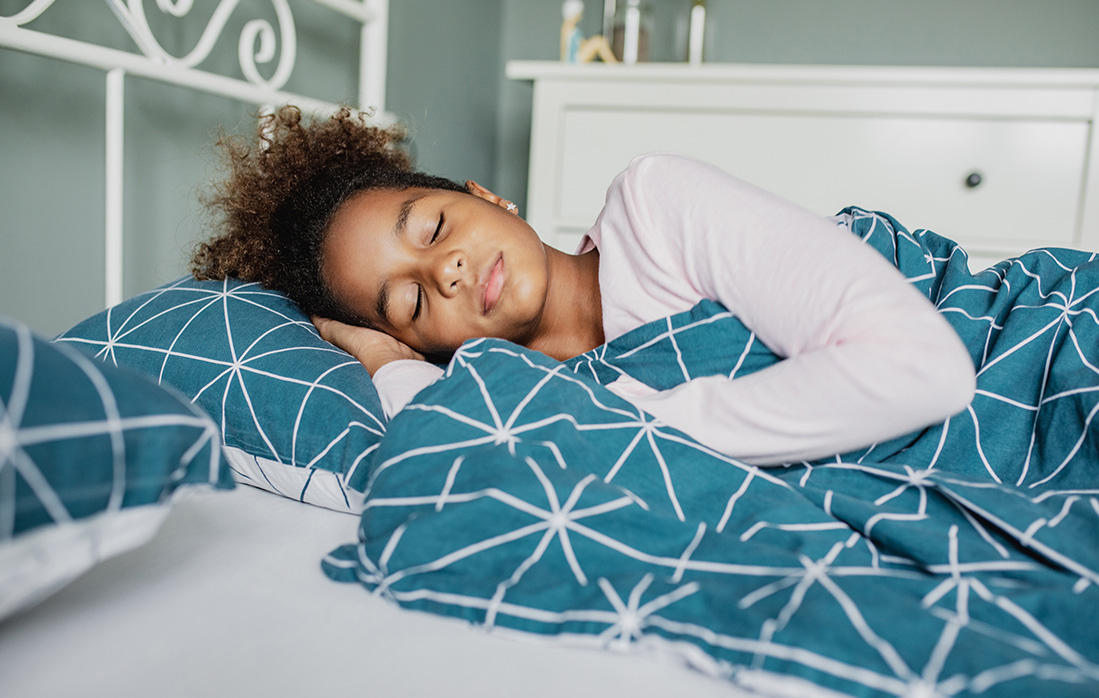
The bedtime battle can start for some parents when their children become toddlers. Others might see it later when evening sports practices and unfinished homework butt up against their need to just relax. But a recent study helps parents across the nation feel vindicated in their efforts to get their children to bed at a decent time each night. (1)
The National Institutes of Health (NIH)-funded study found that irregular sleep and late bedtimes led to poorer academic performance for teens. It also led to an increase in school-related behavioral problems.
In the NIH-funded study, researchers at Stony Brook University in New York state used data from almost 800 adolescents in a larger Princeton study. Participants were asked to share information about their grades and any behavior issues at school. Researchers found that the teens with variable bedtimes had a higher chance of receiving a D or lower on schoolwork when compared to teens who followed a more predictable sleep schedule. They also found that adolescents who had varied sleeping patterns each night were more likely to be suspended or expelled from school.
A previous 2023 study from Italy also found a correlation between healthy sleep and academic outcomes for adolescents. (2) Researchers additionally identified the bidirectional relationship that can often be seen between poor sleep quality and adolescent psychology.
Adolescents need eight to 10 hours of sleep each night according to the American Academy of Sleep Medicine, and data has shown that many adolescents get less than that. According to the CDC, 7 out of 10 high schoolers don’t get enough sleep, leading to memory, behavior and physical struggles, along with battling “sleep debt” on the weekends.
So if sleep deprivation can have such a lasting impact on the overall health of growing, young adults, what can parents do to ensure that their teen’s bedtime is truly a chance to rest and reset? Experts agree that there are ways to prioritize and improve sleep for teens, including limiting the amount of screen time in the hours leading to bed, not overbooking them with various extracurricular activities, keeping similar schedules during the week and on the weekends, and working with school administrators to establish later school start times for adolescents. It’s also beneficial to talk with your teen’s medical provider to help identify any physical conditions or sleep disorders that might make getting quality sleep more difficult for your child.
While it might be easier to forego the sleep battle when it comes to your teens, science has shown that they must get the right amount of sleep for their age. By prioritizing sleep for your teen, you’re helping to ensure both solid grades, and more importantly, a lifelong habit for mental and physical health benefits.

How Parents’ Smartphone Use Truly Does Negatively Affect Their Teenagers’ Sleep

Are Extracurriculars to Blame For Kids’ Poor Sleep Schedules? Parents Seem to Think So

Getting Your Kids To Sleep At Any Age

New Study Shows Earlier Bedtime May Help Kids Get More Sleep
Sources
1. The National Institutes of Health; “Irregular sleep and late bedtimes associated with worse grades for high school students,” NIH; https://www.nih.gov/news-events/news-releases/irregular-sleep-late-bedtimes-associated-worse-grades-high-school-students; April 2, 2024.
2. Bacaro V, Carpentier L, Crocetti E. Sleep Well, Study Well: A Systematic Review of Longitudinal Studies on the Interplay between Sleep and School Experience in Adolescence. International Journal of Environmental Research and Public Health. 2023; 20(6):4829. https://doi.org/10.3390/ijerph20064829



























